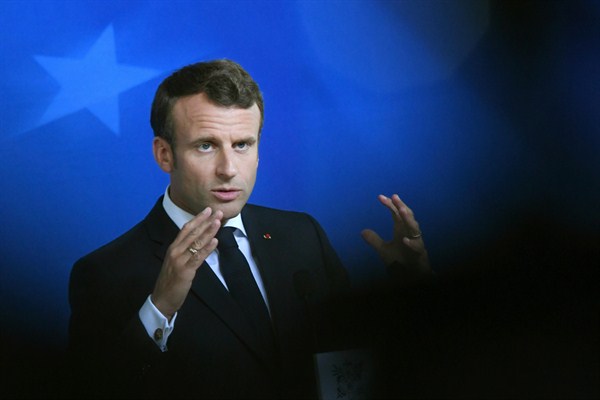Editor’s Note: This article is part of an ongoing seriesabout press freedom and safety in various countries around the world.
During his campaign for the presidency in 2017, Emmanuel Macron assiduously cultivated good relationships with the French press. He appeared to enjoy his interactions with the media, and his message always seemed tailored to his audience. In his interviews with mainstream newspapers and networks, he peppered his answers with philosophical references, projecting a sense of genuine intellectual engagement. When he spoke with the tabloids, he answers were soft and frivolous, and the coverage was fawning.
The campaign was “a masterpiece of political communication,” says Matthieu Lardeau, a former journalist who is now a professor of management and organization studies at the University of Clermont Auvergne, in an email interview. But since taking up residence at the Elysee Palace, Macron’s tone toward the press has shifted markedly. Last year, Macron used the occasion of his annual address to journalists to lecture them on how they do their job and announce a new law designed to combat “fake news.” That law went into effect in December amid concerns about its impact on freedom of expression.

